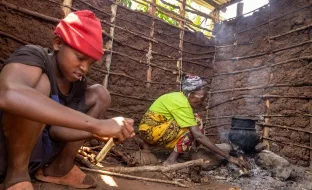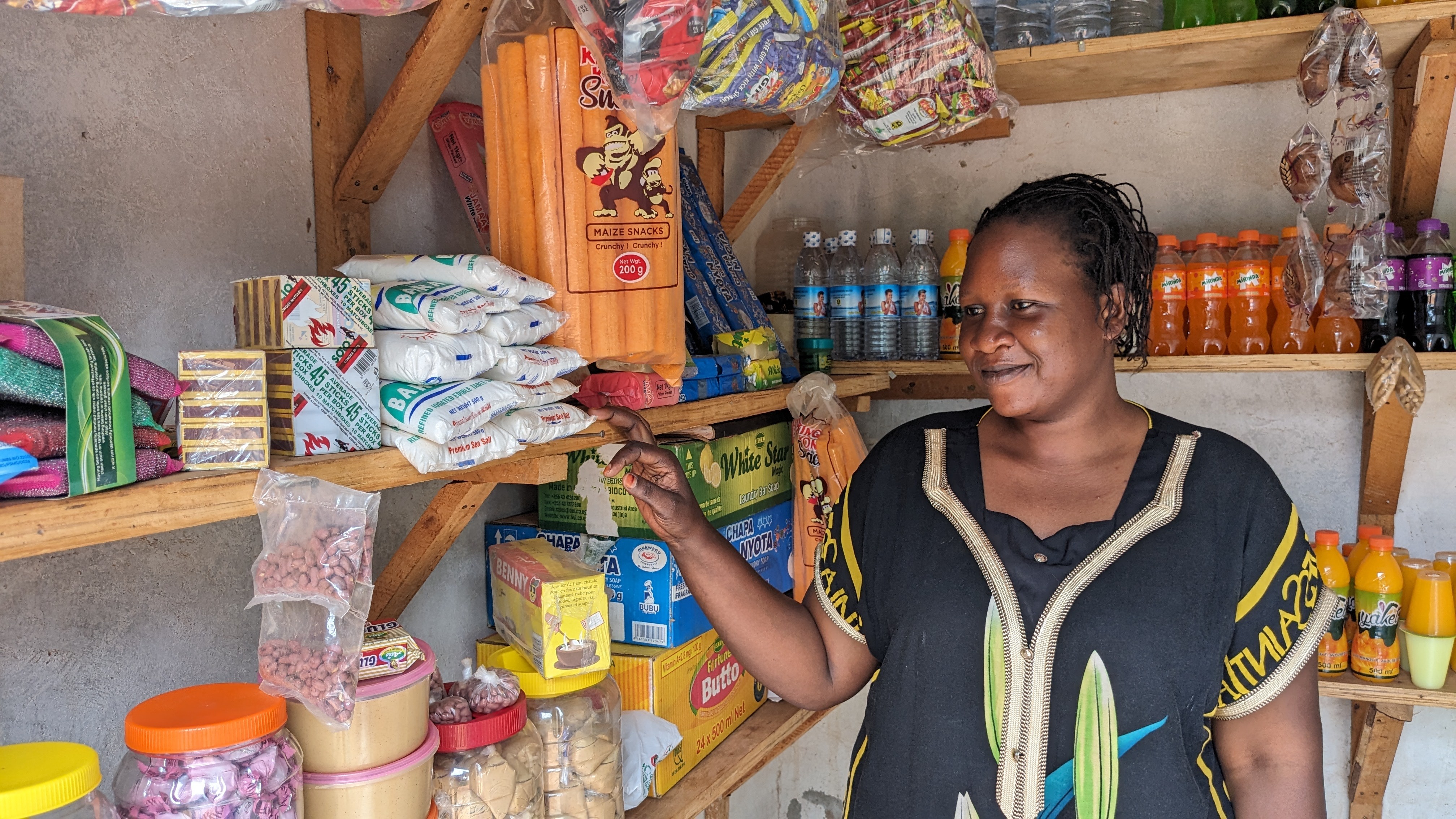In a long podcast on GiveDirectly’s basic income pilot, Vox‘s “Weeds” interviews GD co-founder Michael Faye as well as several recipients of our basic income program in Western Kenya. This piece deals with a range of issues — from recipient choice to social welfare policy and more — while featuring some of the most important voices which are often left out of the debate: recipient families themselves.
GIVEDIRECTLY IN THE NEWS
1. What a Kenyan village can teach us about a universal basic income
Vox, Byrd Pinkerton, May 12, 2017
Late last year, Dylan Matthews went to Kenya to understand one specific experiment — a project organized by the nonprofit GiveDirectly. He wrote a feature piece about his trip. In this episode of Weeds in the Wild, he introduces Sarah Kliff to some of the specific people he met and walks through the policy tensions in a UBI program — like whether it makes sense to give everyone, no matter how rich or poor, the exact same amount of money.
2. How a Universal Basic Income Can Disrupt the Cycle of Poverty
TriplePundit, Leon Kaye, May 11, 2017
Meanwhile, a program launched last year in Kenya found similar results. And the NGO behind the project, GiveDirectly, says its pilot further counters a longstanding argument against a UBI: Monthly supplement encouraged behaviors such as entrepreneurship and savings – not laziness and a rush to buy that bottle of booze.
3. What does early data tell us about how recipients of universal basic income spend their money?
Devex, Catherine Cheney, May 10, 2017
Many of the criticisms of UBI — where money is distributed universally in a community, with no strings attached as to how it is spent — revolve around concerns that recipients will waste the money away, or will not use their time or cash productively. A recent story on the GiveDirectly project in the New York Times was titled “The Future of Not Working,” even though the reporter describes how recipients made entrepreneurial investments.
4. What We’re Learning From a Big Universal Basic Income Experiment
Singularity Hub, Peter Diamandis, May 9, 2017
In a recent Abundance 360 webinar, I interviewed Michael Faye, the co-founder of GiveDirectly, who presented some compelling data about the disruption of philanthropy through peer-to-peer aid.
CASH TRANSFERS IN THE NEWS
5. World Bank Approves Financing to Expand Indonesia’s Social Assistance Program
Financial, May 10, 2017
The financing supports the expansion of the government’s conditional cash transfers under the Program Keluarga Harapan (PKH or Family Hope Program), the strengthening of the program’s delivery system, and improved coordination with complementary social programs, according to the World Bank.
BASIC INCOME IN THE NEWS
6. Basic income is one solution to our growing mental health crisis
The Independent, Amy Downes, May 12, 2017
The Finnish trial is the first of its kind in Europe, however, there have been numerous examples or trials of basic income, including in Alaska, Canada, India, Namibia and Kenya. These trials have sought to examine the effects of direct, unconditional cash payments in sample communities. In each case, amongst numerous other valuable, positive effects these trials have shown that unconditional payments lead to improved mental health outcomes. Advocates of basic income, and those that have researched past trials, believe that a basic income could help to reduce and relieve the inequality and social and financial insecurities that negatively affect mental health.
7. Richemont founder backs universal basic income
The Financial Times, Ralph Atkins, May 12, 2017
Johann Rupert, wealthy founder of Swiss luxury group Richemont, has said he backs governments introducing “universal basic incomes” for all citizens to cope with economic upheaval. He also announced his son and a former top Google executive would join the company’s board to help it adjust to new technologies.
8. The case for and against a universal basic income in the United States
Vox, Byrd Pinkerton and Sarah Kliff, May 12, 2017
This is a concept known as a “universal basic income,” or UBI. The idea is to guarantee everyone some minimum amount of money so that no one has to live in poverty. And while it might sound a little crazy, the idea is being tested around the world — with pilot studies in Canada, Finland, the Netherlands, Kenya, and even one in the United States, based out of Silicon Valley.

